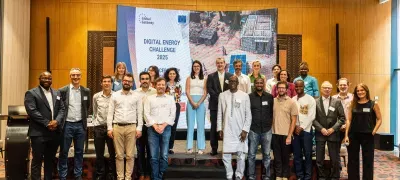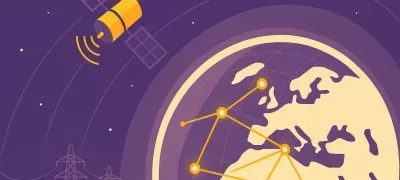
The French Development Agency (AFD) has announced the eleven winners of the Digital Energy Challenge. Focused on three key themes—energy access, grid management, and resilience and decarbonation of power systems —these projects are shaping a future of inclusive and sustainable energy.
On November 28, 2024, in Brussels, the French Development Agency (AFD) announced the list of eleven winners of the 4th edition of the Digital Energy Challenge. Supported by the European Union as part of the Global Gateway initiative, this program recognizes start-ups and utilities in partnership with a technology provider, who are innovating in energy access, efficient grid management, and resilience and decarbonation of power systems.
“Digitalization continues to play a fundamental role in improving energy access, integrating renewable energy, and enhancing the performance of energy operators, particularly in Africa. These 11 projects highlight the importance of African entrepreneurship and the need to further strengthen partnerships between African and European private sectors and public electricity companies," said Cyril Renault, head of the Digital Energy program at AFD."
Digital innovation for the energy transition
For four years, this flagship program has supported digital innovation for an inclusive energy transition. With 30+ projects from over 22 countries and a budget of €6,9 million, the program continues to demonstrate the tangible impact of digitalization in the energy sector.
Nicolas Guichard, Head of Energy Unit at the AFD, highlighted the program’s impact: "For this fourth edition, we were thrilled to see the enthusiasm of both new and past winners attending this year. This initiative fosters connections, synergies, and potential partnerships between the 37 winners from the last four editions. This ambition is now reality with the Digital Energy Community."
The 11 Award-Winning Projects
In many regions of the world, access to reliable energy remains a major challenge. To address this, an ambitious project :
South Africa: The Future of Energy introduces HALO, a platform simplifying loan approvals for energy companies. Automation reduces transaction costs, enabling critical infrastructure investments.
Optimizing Grid Management
Efficient grid management is crucial to meeting growing energy demands. In Nigeria, ICE Solar is developing an AI-powered platform for predictive maintenance of solar micro-grids used by SMEs, preventing costly outages.
In Uganda, Kamata Online Protection Services combats electricity theft with an IoT solution combining smart locks and advanced monitoring. Meanwhile, EMAE and Hart BR in São Tomé and Príncipe automate and protect overhead distribution lines with DORIS, significantly reducing losses and outages.
A Kenyan project led by Yetu Smart Grids, leverages advanced software to analyze consumer data and balance mini-grids effectively, offering smoother and more optimized infrastructure management.
In Benin, WAPP and IED Benin are implementing GISELEC INSIGHT, a geospatial solution for planning and optimizing distribution networks, accelerating rural electrification for underserved communities.
Burkina Faso’s InnovateHub proposes ZED BOX, an IoT system that detects lightning in real-time, preventing potential power outages.
And finally, in Madagascar ANKA and UPYA Technologies are collaborating on a digital platform that revolutionizes mini-grid management. User connections, billing, and performance tracking are automated, improving economic viability and expanding coverage
Enhancing Resilience and Sustainability
Energy infrastructures must become more resilient and sustainable to tackle climate change. In Nigeria Anfani Energy is introducing a fractional ownership platform, enabling individuals and investors to co-finance solar assets, making renewable energy more accessible.
In South Africa Fuel Switch uses blockchain to facilitate peer-to-peer trading of renewable energy certificates, encouraging decarbonization and a green economy.
Another South African initiative, launched by Ethekwini Metropolitan Municipality and Plentify, optimizes solar energy usage in households, reducing energy consumption and boosting sustainability.
Boosted by these successes, the Challenge will return in 2025 for a fifth edition.
In the meantime, you can explore the achievements of our community over the past four years by downloading the brochure below.



